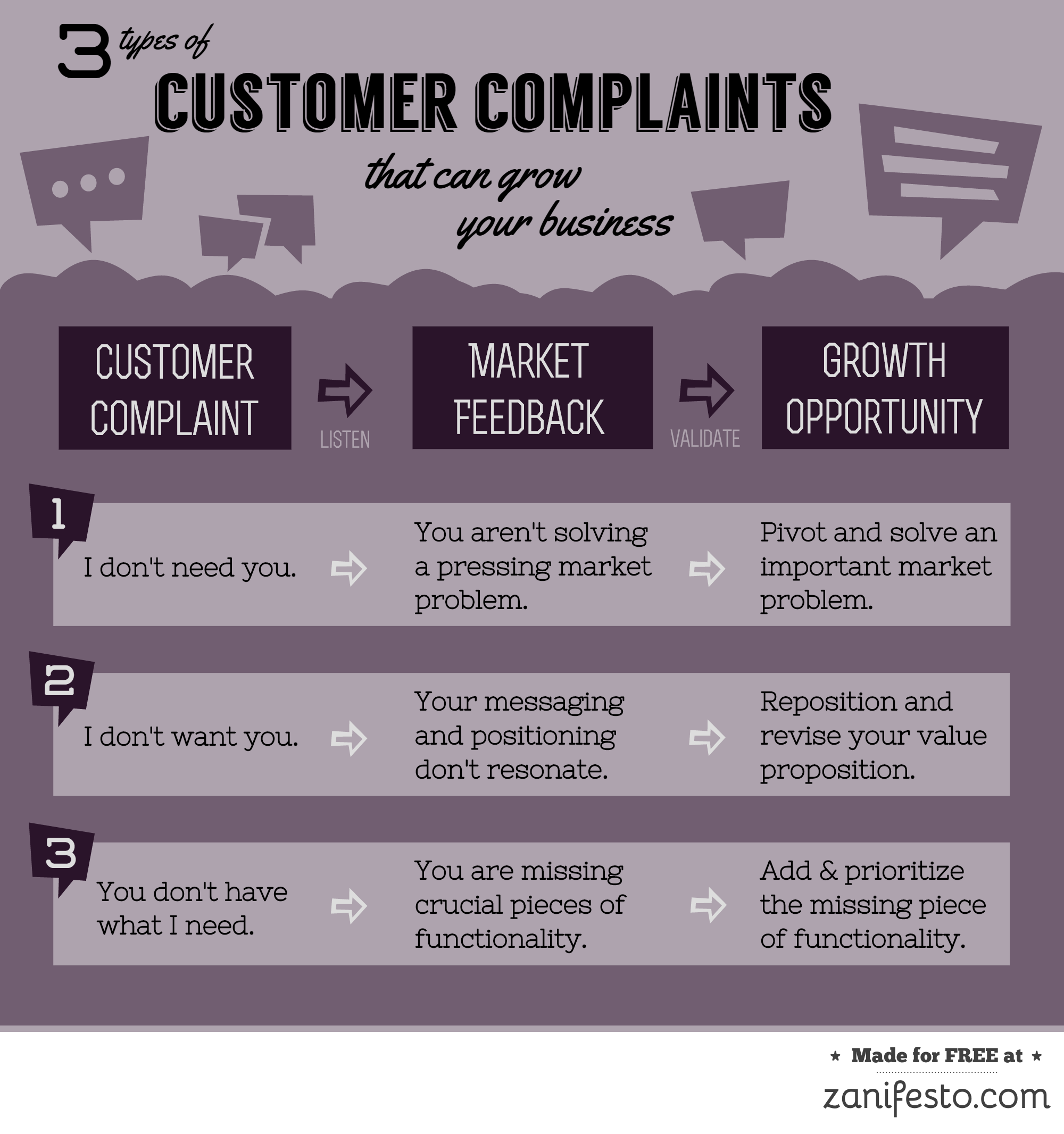
It is hard not to feel a twinge of resentment when you receive your first customer complaint. You devoted time, money, and other resources into building your baby and here comes this person pointing out its flaws.
Yet, this is no time to dwell on your emotions. You’ve been presented with a valuable opportunity, and with the right response, you can turn a complaint into profit.
If you start with the belief that a complaint is feedback from someone in your target market, recognizing the complaint’s value becomes easy. Companies pay lots of money to gather market feedback and here you have it fall right in your lap.
It is easy to dismiss a complaint as wrong or irrelevant, but instead ask yourself how you can use it to improve your business. From there, validate your answer with others in the market and, if applicable, implement it.
For example, a customer complaint could indicate that:
You aren’t solving a pressing market problem.
Customers only see value in a solution that solves a problem they experience. If your target market isn’t experiencing the problem you are solving, the problem isn’t that big of a deal, or you aren’t solving it very well, go back to the drawing board. Change or improve your solution to better solve a pressing market problem and you’ll be more likely to see customers pay for your product or service.
Your messaging is off.
Maybe you are solving a pressing market problem, but the complainer doesn’t correctly understand your business or recognize your solution’s value. Instead of firing off a snarky response, take an introspective stance and identify ways to reduce confusion. Try highlighting your value proposition, clarifying your marketing message, or updating your website. If this person is confused, it is likely others are as well.
You are missing crucial functionality from your MVP (minimum viable product).
-
You haven’t properly prioritized your roadmap.
The improvement is already on your roadmap, but this feedback suggests it is more important than you thought. If the market values this improvement above other roadmap items, raise the priority and implement it sooner. If you have specific questions or uncertainties, use the complainer as one of your resources. After all, they expressed a willingness to provide feedback.
-
You need to add this to your roadmap.
The complaint brought to light something you hadn’t considered, but should implement. If the market agrees this would add value, add it to your roadmap.
These are just a few examples of finding value in a customer’s complaint. Obviously, you should not make business decisions based solely on one customer’s opinion, but you can use it as a starting point to investigate possible improvements.

How have you turned a complaint into an opportunity?
This article has been edited and condensed.
Jen Benz is the co-founder of Zanifesto, an easy to use, web-based infographic builder that empowers budget savvy entrepreneurs to create high quality infographics, media kits, and other marketing materials. Connect with @zanifesto on Twitter.
© YFS Magazine. All Rights Reserved. Copying prohibited. All material is protected by U.S. and international copyright laws. Unauthorized reproduction or distribution of this material is prohibited. Sharing of this material under Attribution-NonCommercial-NoDerivatives 4.0 International terms, listed here, is permitted.













